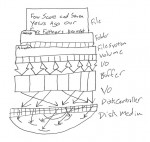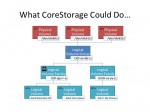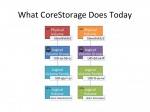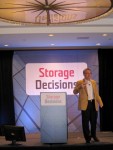The Four Horsemen of storage system performance cannot be denied, but they do offer a clear path forward. Storage systems must improve in many different areas, from spindles and drives to caching and I/O bottlenecks. But above all else, storage systems must become smarter in order to become faster, and this requires greater insight into the true nature of the data stream being stored. All storage performance developments, from the laptop to the enterprise, boiled down to adaptations to the demands of the Four Horsemen.
volume manager
Storage Decisions New York: Capacity Optimization
Later this month, I will be heading to New York for TechTarget’s Storage Decisions conference. I will have two presentations on data reduction and storage virtualization in the main conference track. Registration is free for qualified end-users, and I urge you to attend on September 19 and 20, 2011.
Undocumented CoreStorage Commands
I am pleased to note that CoreStorage, the volume manager in Mac OS X Lion, is much more functional than I had guessed, including a number of undocumented but seemingly functional commands for on-the-fly resizing of logical volumes as well as manipulation of physical volumes.
Mac OS X Lion Adds CoreStorage, a Volume Manager (Finally!)
Mac OS X was majorly deficient in that it lacked a volume manager. This wouldn’t seem like a big deal to the average user, but held back the operating system in so many ways. A volume manager brings storage virtualization to an operating system, allowing storage capacity efficiently to be managed and manipulated. But all this has changed in Mac OS X 10.7 “Lion†with CoreStorage.
Storage Decisions Chicago: All About Capacity Optimization
Next month, I will be heading to Chicago for TechTarget’s Storage Decisions conference. This show does a good job on the editorial side, suggesting timely topics and bringing in independent voices like Howard Marks. I will have three presentations to give: Sessions on data reduction and storage virtualization in the main conference track, as well as a dinner discussion focusing on controlling the growth of data. Registration is free for qualified end-users, and I urge you to attend.




